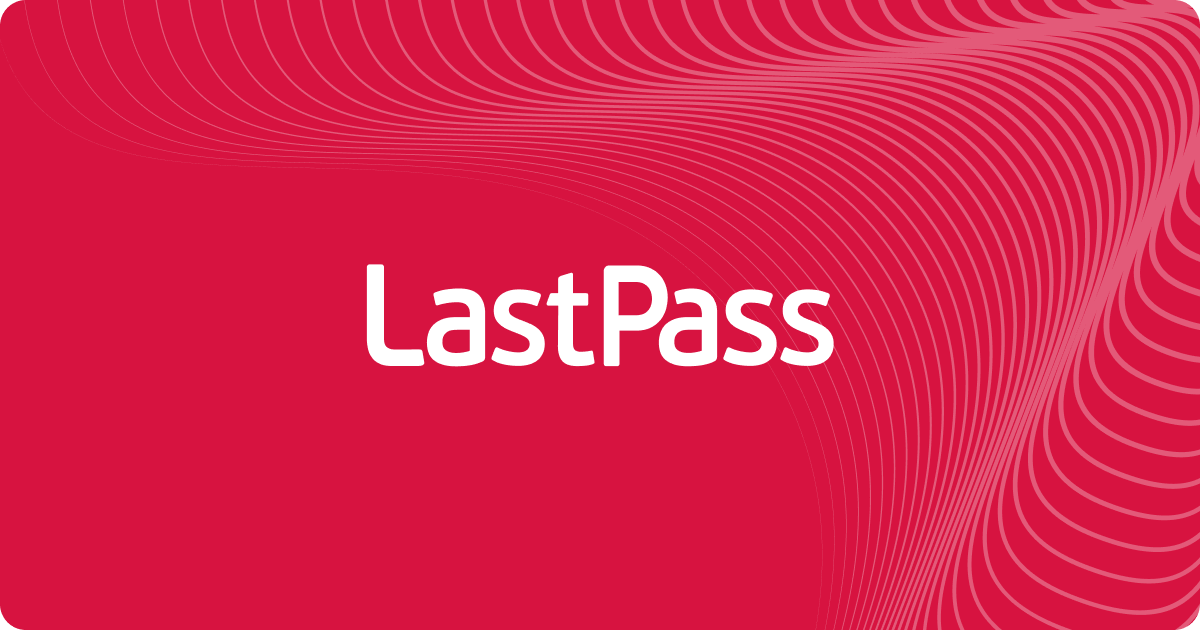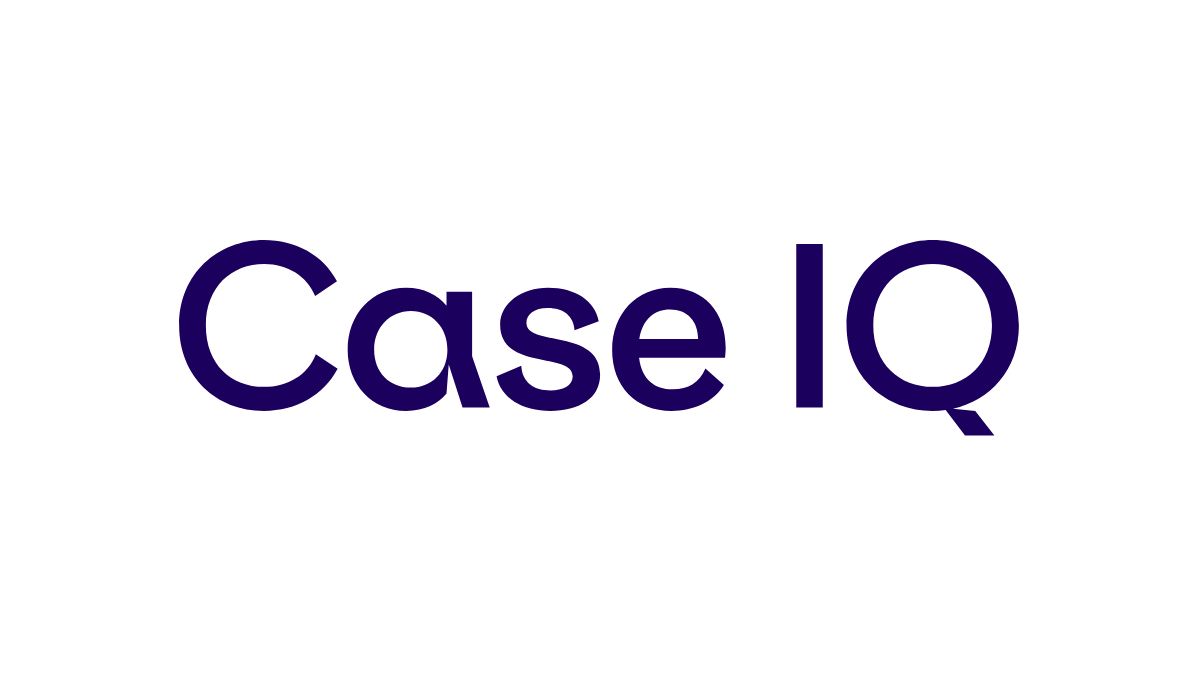Introduction
With cybercrime on the rise, organizations must prioritize security awareness training to promote a strong security culture within their workforce. Regular training helps employees understand the evolving threat landscape and arms them with the knowledge to identify risks and ensure data protection. This blog evaluates the top platforms that make training engaging, impactful and aligned with an organization’s security goals.
Methods of Evaluation
To identify the top platforms, we considered various factors like the breadth and customizability of available content, the capabilities for phishing simulations and efficacy measurement, engagement tools like gamification, and other criteria like number of customer reviews, backlinks from authority sites, website traffic and keyword search trends. An ideal platform offers a full-featured free trial, robust analytics and the flexibility to scale with an organization’s needs over time.
1. LastPass
LastPass is one of the most well-known and trusted password managers on the market. In addition to offering robust password management and single sign-on capabilities, LastPass also provides security awareness training as an optional add-on solution. This allows organizations already using LastPass for other purposes to seamlessly integrate awareness training for employees.
Pros: Some key advantages of LastPass security awareness training include:
– Can be seamlessly added onto existing LastPass deployments already used by an organization
– Leverages the trusted LastPass brand and existing customer relationships
– Training content is regularly updated based on the latest threats and issues
Cons: One potential disadvantage is that the training may not be as robust or full-featured as dedicated security awareness training platforms. As an optional add-on rather than the core product, some functionality could be limited.
Pricing: LastPass offers three tiers of pricing for its security awareness training solution:
– Individual – $3/user/month
– Business – $4/user/month
– Enterprise – Custom pricing
Plans include access to the training library and reporting dashboard.
Some key stats about LastPass include:
– Over 92 million users worldwide
– Used by more than 30,000 businesses
– Supports over 1,200 web apps and browsers through integration
– More than 10 years of experience in the password management and cybersecurity space
2. CSIS Security Group
CSIS is a highly respected nonprofit cybersecurity research group based in Washington D.C. Founded in 1962, CSIS has leveraged over 50 years of cybersecurity experience and research to develop their security awareness training software. Through their training platform, CSIS aims to help organizations build a culture of cybersecurity and empower employees to protect company and customer data.
Pros: Some of the key advantages of the CSIS security awareness training include:
– Expert insights from leading cybersecurity researchers and former government officials
– Wide range of free online cybersecurity resources and information
– Training modules adapt based on user responses and cover frequently changing cybersecurity issues and trends
Cons: The main potential disadvantages include:
– As a nonprofit, the software may not have as many customization options as paid commercial platforms
– Training focuses more on awareness versus technical skills development
Pricing: Pricing for CSIS security awareness training software starts at $5 per user per year for basic packages. Discounts are available for nonprofits and educational institutions. The platform also offers a generous free trial and many free online security resources outside of the paid software.
Some key stats about the CSIS security awareness training software include:
– Over 500 organizations globally use CSIS training platform
– Trained over 1 million users since 2020
– Offers training in 5 languages (English, Spanish, French, Portuguese, Chinese)
– Regularly updated content covers the latest cyber threats and risks
3. Pluralsight
Pluralsight is an online learning platform that offers a vast library of technology and professional skills courses to help individuals and teams build better products. While primarily focused on technical skills training, Pluralsight’s library contains some materials that can supplement security awareness training topics. Courses are accessed through a flexible monthly subscription model.
Pros: Some key advantages of using Pluralsight for security awareness include:
– Vast library of tech and soft skills courses that may include supplemental materials
– Flexible monthly subscription access allowing topics to be revisited anytime
– Can supplement an existing awareness program with additional learning resources
Cons: Potential disadvantages include:
– Focus is on technical skills rather than dedicated security awareness training
– Requires individual sourcing of relevant materials rather than a curated awareness program
Pricing: Pluralsight offers flexible monthly subscriptions starting at $29 per month for individual plans and discount membership options for teams and enterprise organizations.
Pluralsight hosts over 10,000 technical, creative and business courses delivered by industry experts. More than 1.5 million subscribers worldwide use Pluralsight to develop critical skills, access best practices and keep up with industry innovation.
4. Simplilearn
Simplilearn is a leading online bootcamp and online courses platform that offers training in various technologies and key IT skills. It was founded in 2010 and has since helped over 2 million professionals across 150 countries upskill and advance their careers. Some key offerings include professional certificate programs, bootcamps, and short guided learning paths across domains like data science, cyber security, digital marketing, project management, and more.
Pros: Some key advantages of Simplilearn’s training programs include: – Large library of in-demand tech courses covering areas like AI, cloud, cyber security etc. – Focused training paths for major certifications like CISSP, CCNA, PMP etc. – Offers both online self-paced and part-time instructor-led blended learning approach – Hands-on labs and projects as part of the curriculum – Career assistance with resume preparation and job search help
Cons: One potential disadvantage could be that since the courses are online-only, it may not offer the same hands-on experience and peer learning that an in-person bootcamp might provide. However, Simplilearn does include hands-on labs and projects to make up for this to some extent.
Pricing: Simplilearn offers flexible pricing with monthly and annual subscription plans starting from $39 per month. However, their professional certificate programs and individual courses are priced starting from around $10-15 for single courses to $1000-2000 for full stack comprehensive programs depending on the topics covered.
Some key stats about Simplilearn’s offerings include: – Over 300+ courses and 40+ professional certificate programs – 1000+ hours of interactive online content – Flexible learning with both self-paced and part-time instructor-led options – 20+ new courses launched every month – Average completion time for programs between 3-6 months
5. Discovery Education
Discovery Education is an education technology company that creates custom security awareness training programs. Founded in 1954 with a focus on K-12 education, Discovery Education has expanded to offer innovative security awareness training solutions for organizations of all sizes. Their training programs aim to educate users on how to identify and prevent common cyber threats like social engineering, phishing, and ransomware.
Pros: Some key advantages of Discovery Education’s security awareness training program include:
– Social engineering prevention training through simulations of common hacking techniques
– Flexible online and offline training options for a hybrid workforce
– Microlearning modules tailored for different employee roles within an organization
– Gamification of cybersecurity lessons through simulations and games
– Ongoing platform updates to keep training content relevant with the latest threats
Cons: One potential disadvantage is that Discovery Education’s training platform may have an overwhelming amount of content and customization options which could make it difficult for smaller organizations to navigate. Administering flexible role-based training programs across multiple departments requires dedicated resources.
Pricing: Discovery Education offers flexible pricing plans for its security awareness training platform. Basic annual plans start at $5 per user but discounted rates are available for organizations with over 500 users. Additional customization, content development, and professional services are also available for an added fee. Contact a sales representative for a customized quote.
Discovery Education’s security awareness training program currently has over 500,000 users across various industries. Some key stats about their training platform include:
– Over 50 online and offline security awareness courses
– Role-based microlearning modules for tailored training experiences
– Gamified training methods with simulations and games to engage learners
– Regular content updates to address the latest cyber threats
6. TalentLMS
TalentLMS is a cloud-based learning management system (LMS) software created by TalentLMS. Founded in 2011, TalentLMS provides online learning solutions for organizations to design, deliver, and track security awareness training and other online courses. With over 4,000 customers in 120 countries, TalentLMS is one of the leading LMS platforms for both business and education.
Pros: Some key advantages of TalentLMS include:
– Integrated learning platform with built-in security awareness training templates and content.
– Highly customizable training workflows that can be gamified for an engaging learner experience.
– Robust reporting and analytics to track training certifications and compliance needs.
– Intuitive admin dashboard and customizable templates for creating good-looking online courses quickly.
Cons: One potential disadvantage is that TalentLMS may be overkill for very small businesses or those with basic training needs. The platform is best suited for mid-sized to large organizations with advanced L&D requirements.
Pricing: TalentLMS offers flexible pricing plans starting from a free Basic plan for up to 250 users. Premium monthly pricing starts at $19/user or an annual subscription of $15/user for advanced features like Single Sign-On and mobile optimization.
Some key stats about TalentLMS include:
– Over 4,000 customers globally across various industries such as healthcare, retail, manufacturing, and more.
– Hosts over 80 million learning assets and courses.
– Integrates seamlessly with other platforms like Slack, Microsoft Teams, and Google Workspace.
– 99.9% uptime guarantee.
7. Barracuda Sentinel
Barracuda Sentinel is Barracuda Networks’ security awareness training software. Barracuda Networks is the worldwide leader in Email Protection, Application Protection, Network Security, and Data Protection Solutions. Barracuda Sentinel provides online security awareness training modules to teach employees how to identify and avoid cyber threats like phishing, social engineering, and ransomware attacks.
Pros: Some key advantages of Barracuda Sentinel include:
– Full suite for email security and protection
– Granular permissions and access controls
– Real-time detection of credential sharing
Cons: The main disadvantage is the cost – the pricing can be higher than some other security awareness training software options depending on the number of users.
Pricing: Pricing for Barracuda Sentinel starts at $2 per user per month for essential access and goes up based on the number of users and additional features needed.
Some key stats about Barracuda Sentinel include:
– Over 1,000 pre-made interactive training modules available
– Trains over 10 million users annually
– Integrates with over 150 identity and access management systems like Active Directory, Azure AD, and Okta
8. KnowBe4
KnowBe4 is the leading security awareness training platform. Founded in 2010, KnowBe4 helps organizations manage the ongoing problem of social engineering and targets human error – the biggest cybersecurity risk. With its security awareness training platform, KnowBe4 provides security awareness training, phishing simulations and more to over 50,000 organizations worldwide.
Pros: Key advantages of KnowBe4 include:
– Most trusted and widely used platform
– Extensive phishing simulations and security awareness training content
– Has AI/ML capabilities such as Kevin to automate and personalize training
Cons: A potential disadvantage is the cost as KnowBe4 plans and pricing can be on the higher side for some organizations.
Pricing: KnowBe4 offers different pricing plans starting from $3 per user per month for their basic Starter plan up to $10 per user per month for their highest Enterprise plan. Pricing is based on the number of users and additional features and content included in higher tier plans.
Some key stats about KnowBe4 include:
– Over 50,000 organizations use KnowBe4 globally
– Hundreds of security awareness training modules and topics
– Billions of simulated phishing emails sent each year
– Over 300+ employees
9. Click Dimensions
Click Dimensions is a security awareness training platform that helps organizations educate employees on cyber threats and best practices through interactive simulations and assessments. Founded in 2012, Click Dimensions provides a comprehensive software-as-a-service solution for conducting ongoing security awareness programs.
Pros: Some key advantages of Click Dimensions include:
– Intuitive and easy to use dashboard for admins to create and assign training
– Automated reminder notifications keep training top of mind
– Real-time configurable dashboards and reporting on training progress andresults
– Adaptive questioning puts users on different learning paths based on pastresponses
– Wide content library that can be customized or augmented with your ownmaterials
Cons: A potential disadvantage is that as a solely cloud-based solution, the training content is not open-source and cannot be self-hosted on-premise.
Pricing: Pricing for Click Dimensions starts at $3 per user per month for the basic plan, which includes core security awareness training functionality. Additional premium plans with more advanced features such as phishing simulations, customized branding and SSO start at $6 per user per month.
Key stats about Click Dimensions include:
– Over 10,000 customers globally
– Delivers security awareness training to over 10 million users
– Content library of over 500 interactive modules across 15 languages
– 99% automated platform requires minimal IT resources
[‘Home | ClickDimensions’, ‘Homepage’]Its Your Lead Now | ClickDimensionsclickdimensions.com
10. Veracode
Veracode is a leading global provider of application security testing solutions. Founded in 2006, Veracode has helped secure applications for over 3,700 customers across a wide range of industries. Veracode analyzes applications for security flaws, provides guidance to fix vulnerabilities, and helps developers write more secure code.
Pros: Some key advantages of Veracode’s security awareness training include:
– Web application security awareness
– Micro-learning modules that are engaging and easy to consume
– Compliance focused training modules for regulations like PCI, HIPAA, GDPR
– Developer security training tailored for software engineers
– Security quizzes and lessons that help measure training impact
Cons: One potential disadvantage is that Veracode’s training options are primarily geared towards developers and technical users. Training may not be as relevant for entirely non-technical employees.
Pricing: Veracode offers flexible pricing plans for security awareness training. Basic plans start at $5 per user per month. Volume discounts are available for larger deployments. An interactive demo is available to explore all features before purchasing.
Some key stats about Veracode include:
– Scans over 5 billion lines of code annually
– Secured over 20,000 applications
– Over 1,000 employees globally
– Used by 90+ of the Fortune 100
11. Wizikey
Wizikey is an online learning management system (LMS) and virtual classroom software that allows businesses and educators to deliver live and self-paced online courses. With Wizikey, you can create engaging online classes, host live webinars and virtual sessions, automate online assessments, and more.
Pros: Some key advantages of Wizikey include:
– Full-featured online learning management platform with authoring, assessments, analytics and more
– Free basic plan allows you to get started without investment
– Intuitive dashboard makes it easy to create and distribute online course content
– Supports both live and self-paced online training delivery
Cons: A potential disadvantage is that some advanced features require an upgrade to a paid plan.
Pricing: Wizikey offers 3 tiered pricing plans:
– Basic (Free) – Supports 1 instructor and up to 100 students
– Professional ($49/month) – Additional features and support for higher student volumes
– Enterprise – Custom pricing for very large organizations
Some key stats about Wizikey include:
– Used by over 5,000 businesses globally to train over 5 million users
– Hosts over 50,000 live classes and webinars each month
– Offers a free basic plan as well as advanced paid plans
12. Cybrary
Cybrary is a free online cybersecurity training platform that aims to help individuals and organizations through career-focused cybersecurity education. With thousands of cybersecurity courses and videos created by industry experts, Cybrary provides one of the most comprehensive cybersecurity training libraries available.
Pros: Some key advantages of Cybrary include:
– Completely free to use cybersecurity training platform
– Wide catalog of up-to-date security awareness courses on various topics
– Courses range from beginner to expert levels suitable for all experience levels
– Integrates with many third party systems for user management and reporting
Cons: One potential disadvantage is that as a free platform, Cybrary does not offer any official certification upon completion of courses. Learners will need to explore additional paid certification options to obtain official credentials.
Pricing: Cybrary offers its entire cybersecurity training library completely free of charge. There are no paid subscription or license fees required to create an account and access all of Cybrary’s security awareness courses and videos.
Some key stats about Cybrary include:
– Over 3,000 security awareness courses and videos available
– Used by over 500,000 learners globally
– Integrates with various systems like Skillport, Cisco NetAcad, and LinkedIn Learning
13. Cofense
Cofense is a security awareness training and phishing defense provider. Founded in 2008, Cofense protects organizations from phishing, the number one cyberattack vector, through a combination of simulated phishing, email security tools, and security awareness training. Using its PhishMe platform, Cofense helps train employees to spot attacks while giving security teams insight into their organization’s weakest links.
Pros: Key advantages of Cofense include: specialized focus on email phishing protection, active response tools allow security teams to intervene in simulated attacks, training ROI can be measured through the PhishMe platform’s detailed metrics and reporting.
Cons: A potential disadvantage is that the PhishMe platform may have a relatively steeper learning curve for security teams to understand and utilize all of its advanced features.
Pricing: Cofense pricing starts with dedicated on-premise deployments and ranges from $50,000 to $150,000 per year depending on organization size and desired capabilities. Cloud-based PhishMe Express starts at $2 per user per month for basic security awareness training and phishing simulations.
Some key stats about Cofense include: protects over 45,000 organizations worldwide, analyzes over 1 billion emails per month for malicious content, users have reported over 13 million suspected phish, training platform includes 600+ compliance-based courses in 17 languages.
14. i-SIGHT
i-SIGHT, formerly known as Case IQ, is a leading security awareness training and monitoring software. Founded in 2002, i-SIGHT helps organizations build strong security cultures with its threat intelligence-driven simulations and engaging learning platform.
Pros: Some key advantages of i-SIGHT include:
– Threat intelligence-driven simulations that replicate the latest real-world attack techniques
– Ability to monitor employee online activities to identify risky behaviors
– Gamified interface makes security awareness practice and training engaging for employees
Cons: A potential disadvantage is that advanced monitoring capabilities may raise privacy concerns for some organizations and employees
Pricing: Pricing for i-SIGHT starts at $3 per user per month for the basic security awareness training package. Additional monitoring and analytics capabilities are available in higher-priced tiers starting at $6 per user per month.
Some key stats about i-SIGHT include:
– Used by over 5,000 organizations worldwide
– Delivers over 15 million security simulations per year
– Average phishing simulation catch rate among customers is 85%
15. Zerofox
Zerofox is a leader in external cybersecurity. The company provides security awareness training and monitoring of social networks to protect organizations from digital risks and threats. Founded in 2014, Zerofox helps enterprises identify and mitigate risks coming from outside the traditional security perimeter, including social media, dark web, and open web.
Pros: Some key advantages of Zerofox’s security awareness training and monitoring platform include:
– Focus on social media security awareness through integrated training modules
– Monitors multiple social networks like LinkedIn, Facebook, Twitter and YouTube to detect phishing scams and brand abuse
– Training addresses vulnerabilities identified by its external monitoring capabilities
Cons: One potential disadvantage is that because Zerofox focuses on external risks, it may not catch internal threats from compromised user accounts or devices on a company’s internal network.
Pricing: Pricing for Zerofox is based on the number of employees at a company. An estimate for mid-sized companies with 500-1,000 employees would be $10,000 – $15,000 per year.
Zerofox monitors over 50 social networks, the open web and dark web daily. Some key stats about the platform include:
– On average detects over 10,000 threats per day for customers
– Has analyzed over 5 billion social posts
– Actively monitors over 500 million usernames, emails and phone numbers
Conclusion
By choosing one of the top platforms reviewed here, organizations can empower their workforce to make security their priority. Regular, proactive training integrated into the workflow makes employees the strongest line of defense. It also helps organizations comply with security requirements and maintain brand trust with stakeholders. The most effective platforms stand out through their commitment to continuous innovation and a user-centric approach to make training an engaging experience.














.png)


